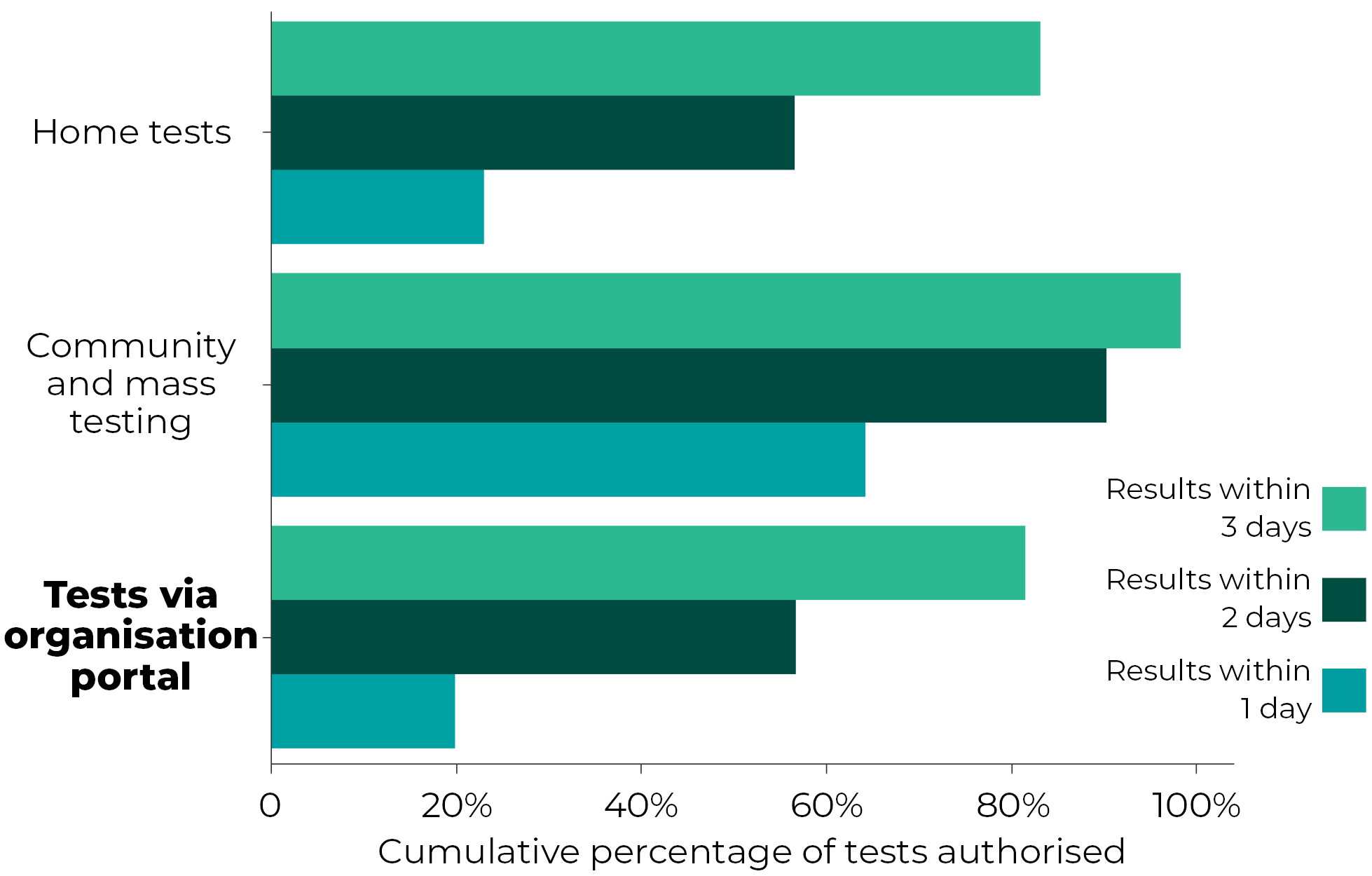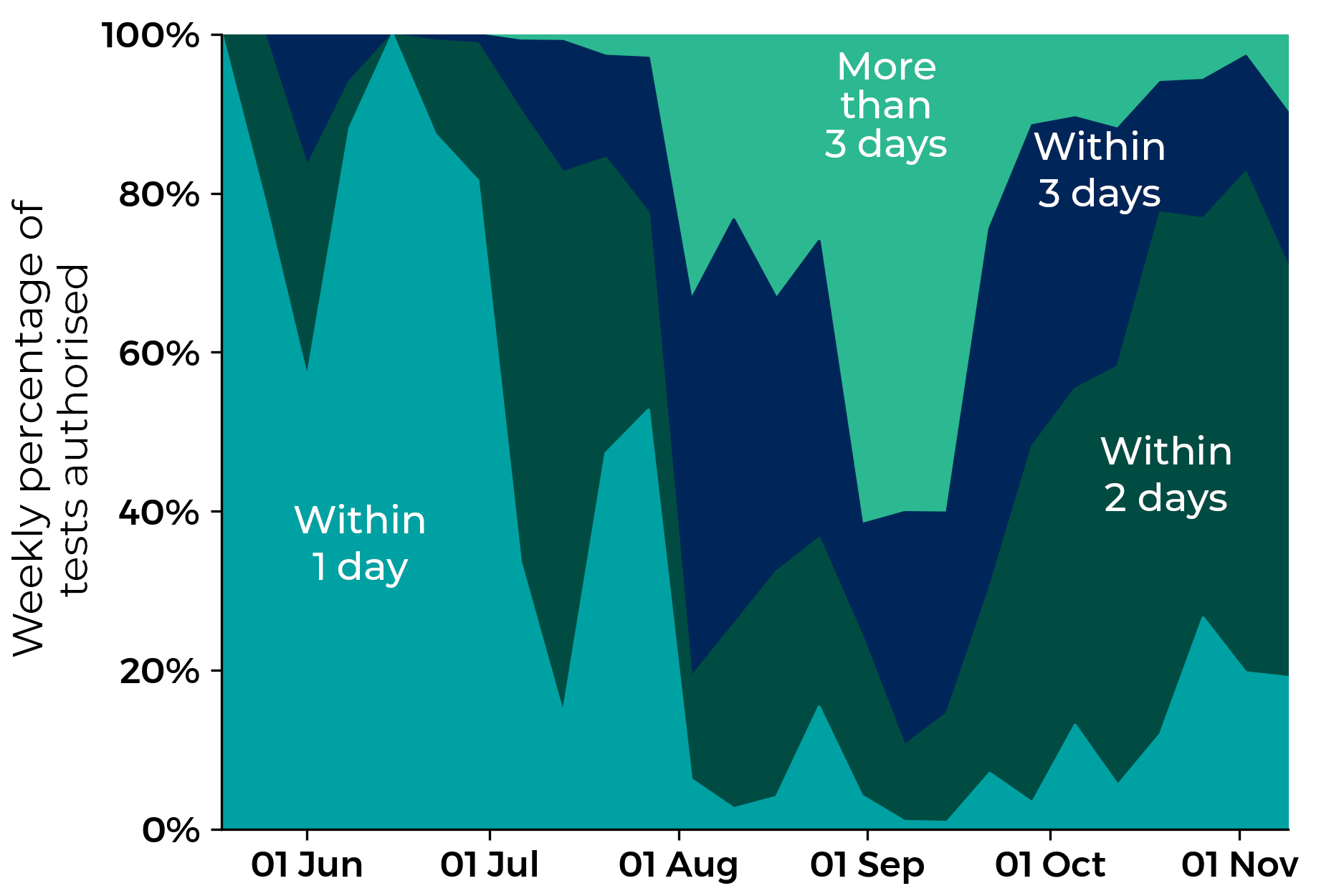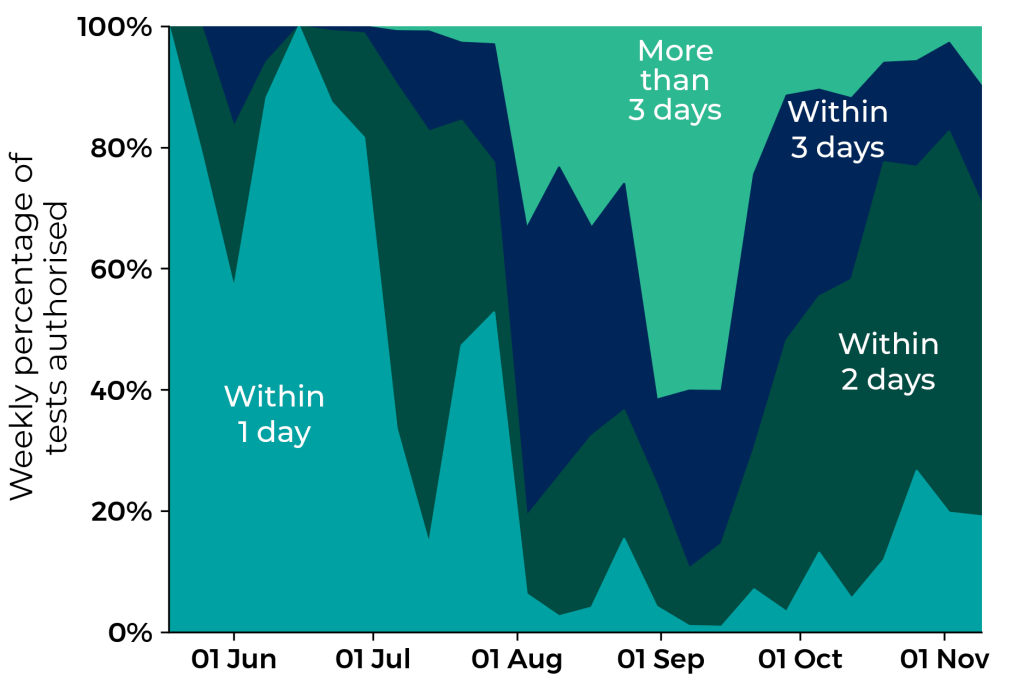In yesterday’s article we looked at the issue of restrictions to care home visits. This second article in our social care series considers the issue of coronavirus testing in a range of care settings.
Testing in care homes
Care home managers report often waiting a week, and sometimes longer, for test results, and the delays are putting residents at risk. Care home owners and staff have been speaking out in the media, saying that the slow turnaround time for tests is directly leading to the deaths of residents.
The Senedd’s Health, Social Care and Sport Committee heard from local authority leaders and the Welsh Government that delays in returns were due to issues with the UK Government’s Lighthouse Laboratories.
The Welsh Local Government Association (WLGA) told the Committee that delays in test results are a priority concern for local authority leaders, particularly in localised ‘hotspots’ where care home residents are being tested on a weekly basis, but results are not being returned in a timely enough manner and sometimes retesting is carried out before previous results have been returned.
Care homes send the tests to the labs in batches as there are large volumes being tested regularly. The Welsh Government’s care home testing guidance says a programme of asymptomatic testing of care home staff was introduced on 15 June 2020, and this programme has been extended to the end of December 2020, ‘enabling statutory partners to determine whether staff in care homes in their local areas should be tested either weekly or fortnightly’.
The guidance was updated on 4 November and states that all asymptomatic testing of care home staff should now be undertaken through the UK Organisations Portal and the Lighthouse laboratories. This may be of concern to stakeholders, given the difficulties experienced so far.
Testing data is available here on the Welsh Government website. The data webpages report that the reduction in turnaround times through the UK organisation portal were caused by demand for repeating screening across the UK which temporarily exceeded the total Lighthouse laboratory capacity. This resulted in temporary backlogs at the laboratories which impacted on end-to-end turnaround time for tests. The Welsh Government has said recently that the ‘Lighthouse labs’ performance appears to be improving.
Cumulative proportion of COVID-19 antigen tests authorised in a non-NHS Wales laboratory within one, two and three days

Source: Public Health Wales. Data from 15 November 2020
The majority of tests via the organisation portal to date are from care homes. This was originally the care home portal but has since been expanded to include other organisations.
Weekly percentage of COVID-19 tests authorised in a non-NHS Wales laboratory by time taken to authorise and date

 Source: Public Health Wales. This data includes all tests completed and not solely the number of individuals tested or testing episodes. The results performance shown is a measure from the date a sample is recorded as being collected to the time that the result is authorised. It does not indicate how long it takes for an individual to receive their result from point of testing.
Source: Public Health Wales. This data includes all tests completed and not solely the number of individuals tested or testing episodes. The results performance shown is a measure from the date a sample is recorded as being collected to the time that the result is authorised. It does not indicate how long it takes for an individual to receive their result from point of testing.
The issue of testing care home residents has also been in the spotlight because care homes in Wales reported feeling under pressure to accept hospital patients without a negative coronavirus test during the height of the pandemic. One media survey reported that 53 percent of staff at care homes felt pressured by their health board to accept people straight from the hospital without a coronavirus test.
It has also recently come to light that 53 people were discharged from hospital into Welsh care homes within 15 days of a positive test at the start of the pandemic. The Welsh Government says further analysis is being conducted on the data and that it is important to wait for the findings before reaching any conclusions.
Testing domiciliary care staff
Unlike for care home staff, there is no programme in Wales of asymptomatic testing for domiciliary (home) care workers, supported living staff, or the people they care for. Domiciliary care workers and their clients are only eligible for a test if they have coronavirus symptoms. This has raised some questions, given that staff are providing close contact care services to a vulnerable population.
Public Health England carried out a pilot prevalence survey in July on infection rates amongst the domiciliary care workforce and concluded that regular testing for staff is not recommended, as the higher prevalence seen in front line healthcare workers and care home staff was not replicated in domiciliary care staff.
However some domiciliary care providers believe home care workers should have equal access to routine testing, given that people who are asymptomatic can pass the virus onto others. The United Kingdom Home Care Association (UKCHA) said:
“This has certainly created a sense that people who use home care services and our workforce have received a low priority in government’s thinking.”
The policy in England was similar to Wales until very recently: On 20 November the UK Government announced that domiciliary care workers can now access weekly asymptomatic testing in England. The UK Government says this expansion of testing will “help identify more asymptomatic cases and protect care users who are more vulnerable to the virus.”
The issues of testing will no doubt remain high on the social care agenda for the foreseeable future. Tomorrow’s article will focus on unpaid carers in the last in our series on the key issues in social care at this point in the pandemic.
Article by Amy Clifton and Joe Wilkes, Senedd Research, Welsh Parliament






